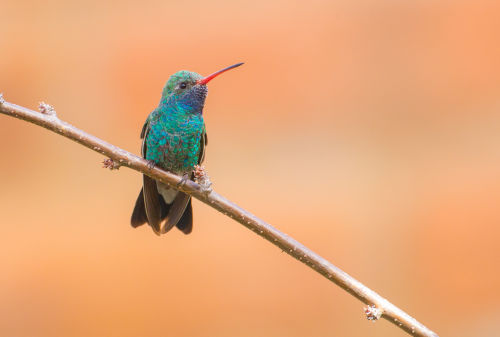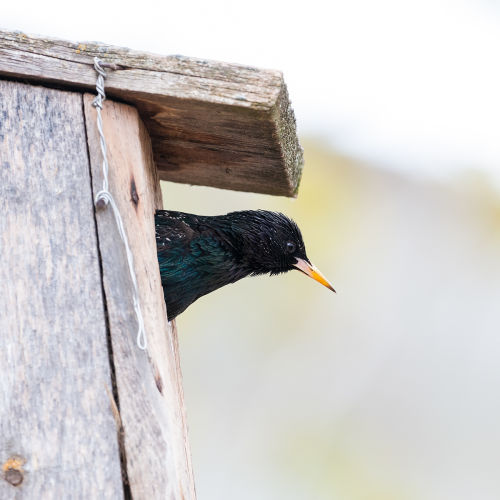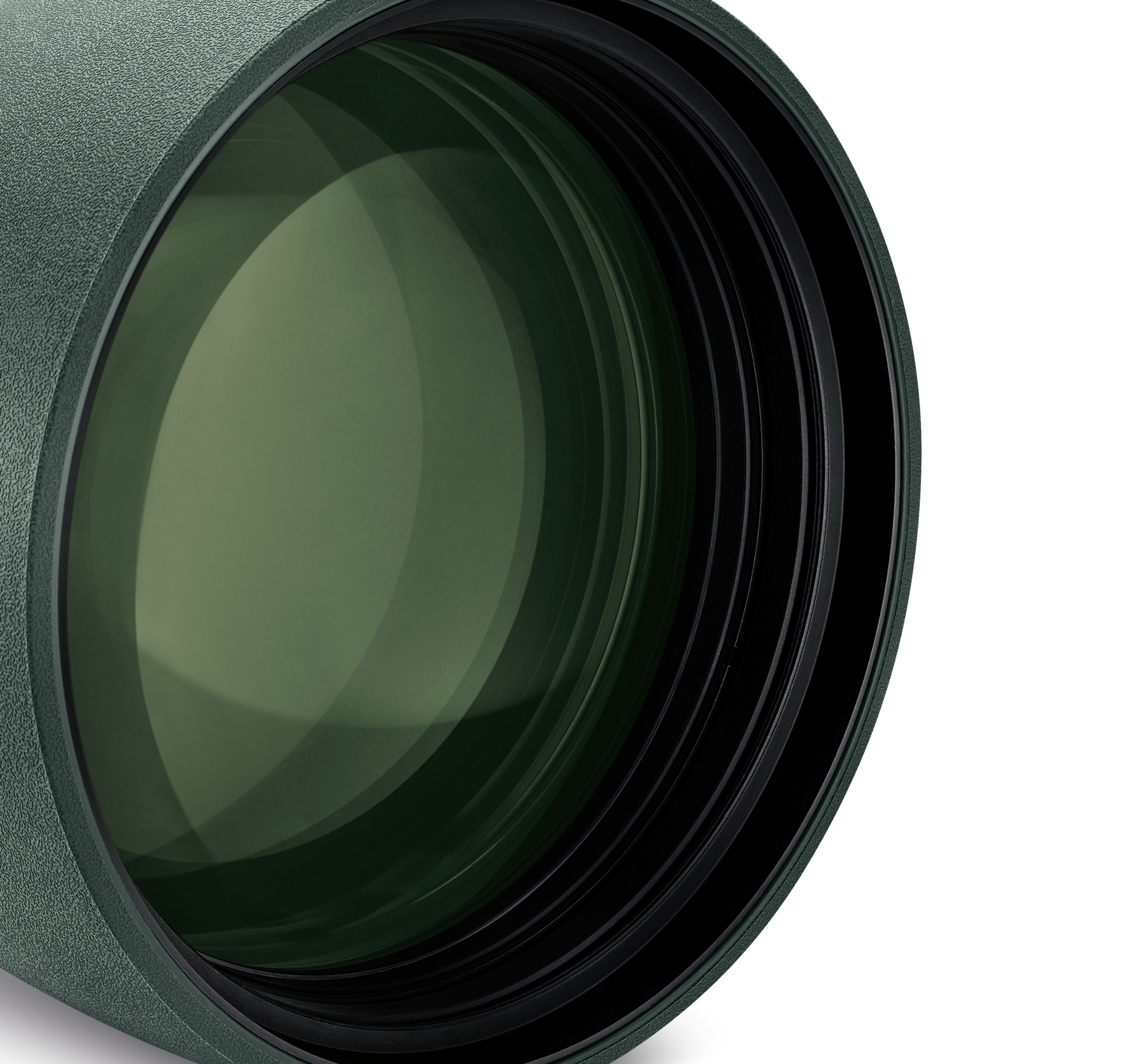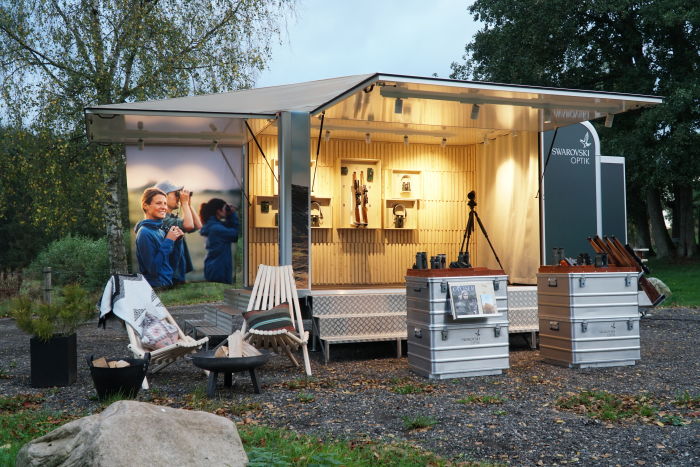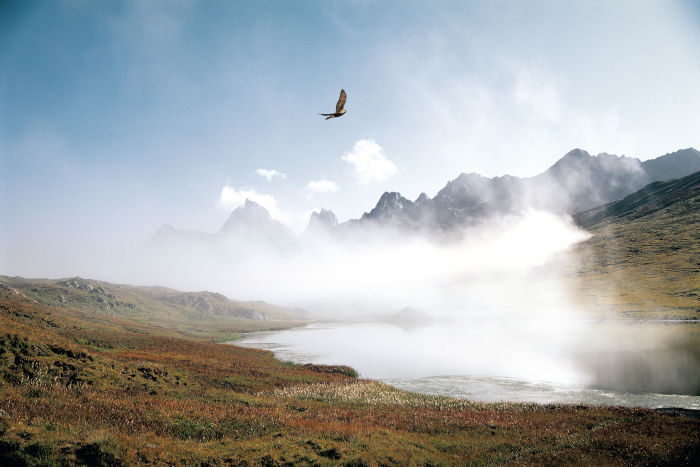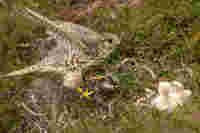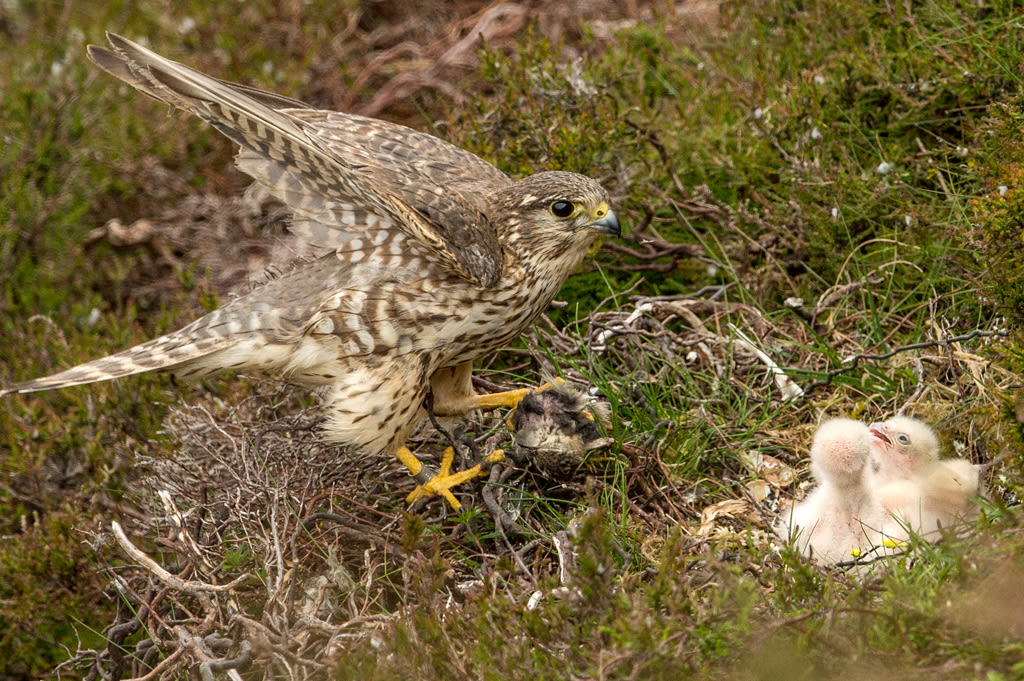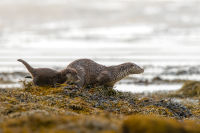Ornithological surveying serves many important purposes in our understanding and protection of birds. Censusing breeding populations, their habitats, movements, and behavior plays an especially important role in the ever-evolving world of renewable energies and developments. A source and provider of a considerable percentage of the energy and electricity now used around the world, wind farms are being built and considered in even the most remote wilderness areas.
Why carry out ecological surveys and assessments?
Many of these wilderness areas are rich in biodiversity. For developments to even be considered, ecological surveys and assessments must be carried out to identify any potential impact a project could potentially have. From an ecological standpoint, as surveyors we may sometimes have conflicting views on some developments due to the species, habitats, location, scale, or industry involved. As a naturalist who wants to protect the wildlife I love, this gives me all the more reason to be a part of it, in the hope that I make a positive difference for the wildlife by doing my best.
Fieldwork is challenging
Spending long hours carrying out fieldwork during breeding season can be challenging and physically demanding, particularly in our upland and moorland habitats. It is not unusual on some surveys to walk upwards for 15-20 kilometers (10-12 miles) per day, often over difficult terrain. However, many of these marvelous moorland habitats are home to a rich diversity of breeding birds here in Shetland, from the commonest to some of rarest breeding birds in the British Isles.
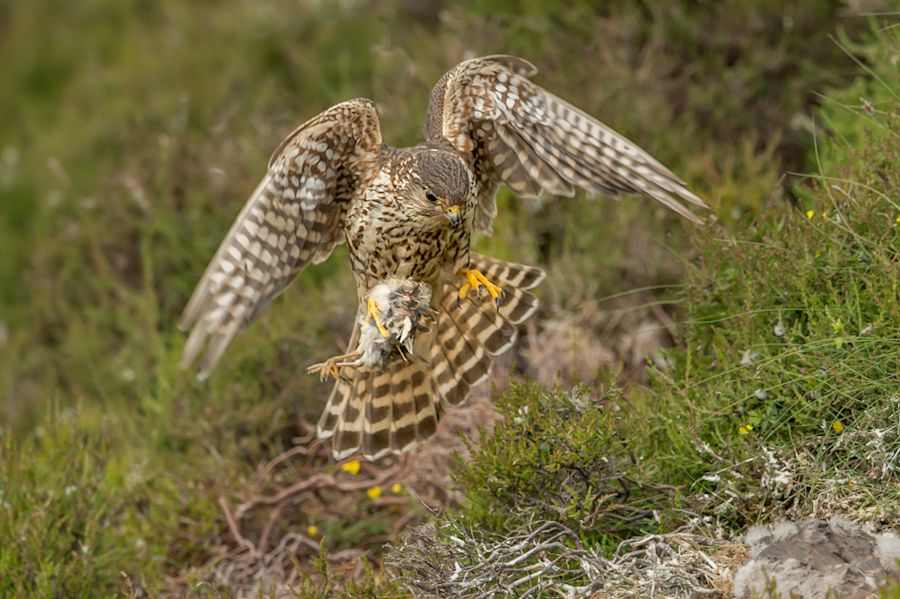
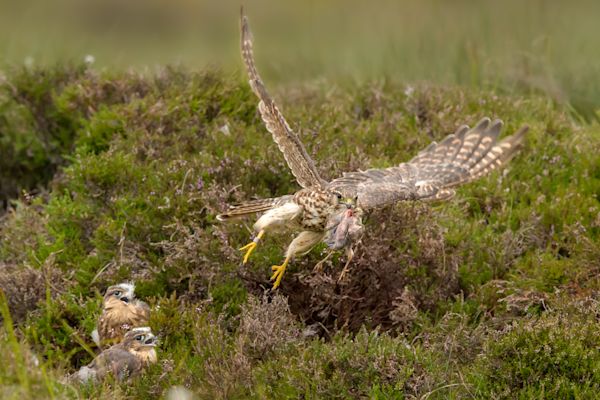
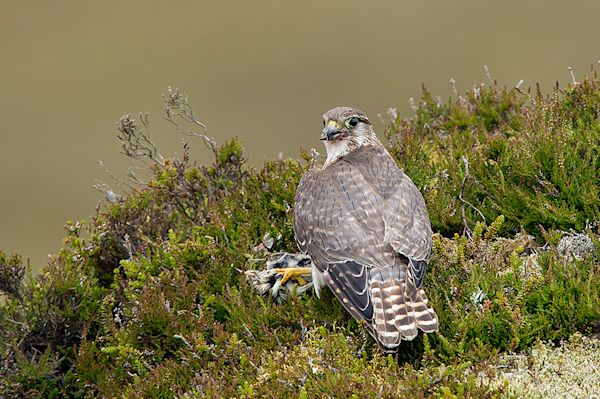
How to monitor breeding birds and what to record
Different surveys may require different data to be recorded. From mapping out breeding pairs and their territories, finding nests or the flight lines used to and from their breeding grounds are just a few examples. For the rarer species (which enjoy specific legal protection), monitoring is required to record and assess their movements and behavior at their breeding site as accurately as possible.
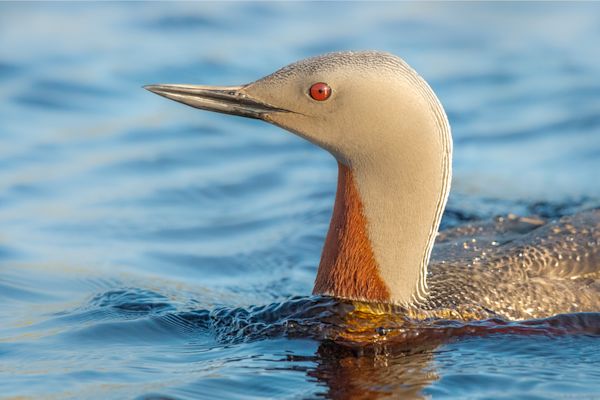
Priority species:
Merlin and Red-throated Diver
This is probably the area of ecological survey work that I enjoy the most. Two of the priority species are also my own personal favorites, Merlin and Red-throated Diver. These are species that (under special license) I also follow each summer on photographic assignments. So I already know them very well.
Watch without disturbing
For these hide-work assignments we need several weeks of preparation, particularly in positioning of the hide (moving gradually so as to allow acceptance). Luckily, my colleague assists me in the ‘walk-in’ technique to trick the birds and be left in the hide.
Monitoring these sensitive species requires a very different approach, however. Like many breeding birds they have a tolerance radius from their nest. Merlin will begin to alarm if a potential threat, human or bird approaches within a few hundred meters. They will continue to alarm until the threat has left. In order to study and record their movements and behavior naturally they must be observed from well outside their zone.
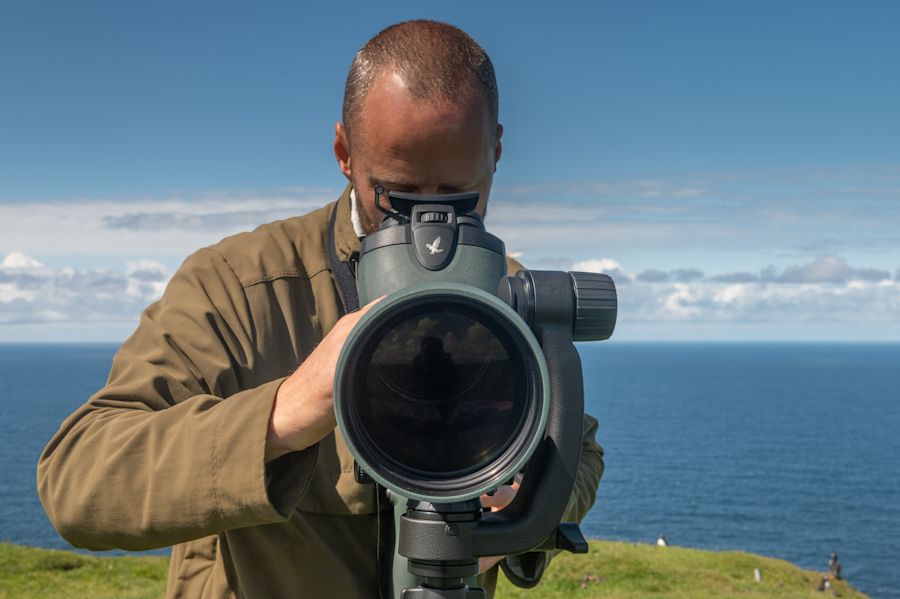
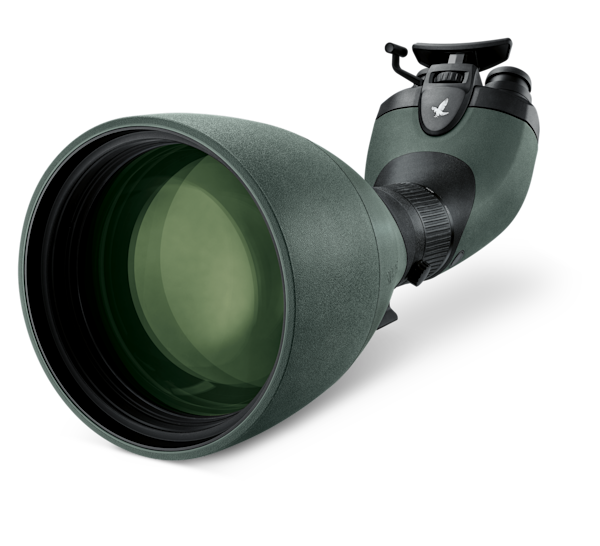
The 115-mm objective module at its best
For both these species the data recorded is similar, such as flight lines- height, directions, and times but also when feeding chicks, what the prey species are. A telescope is essential for recording such important detail. I was particularly excited at the prospect of the 115-mm objective module for this. In addition to this range, many observations are done in poor light conditions, be it dawn or dusk or under heavy, overcast skies. Thanks to the light gathered, along with the power of the zoom I was able to identify and record important details with confidence.
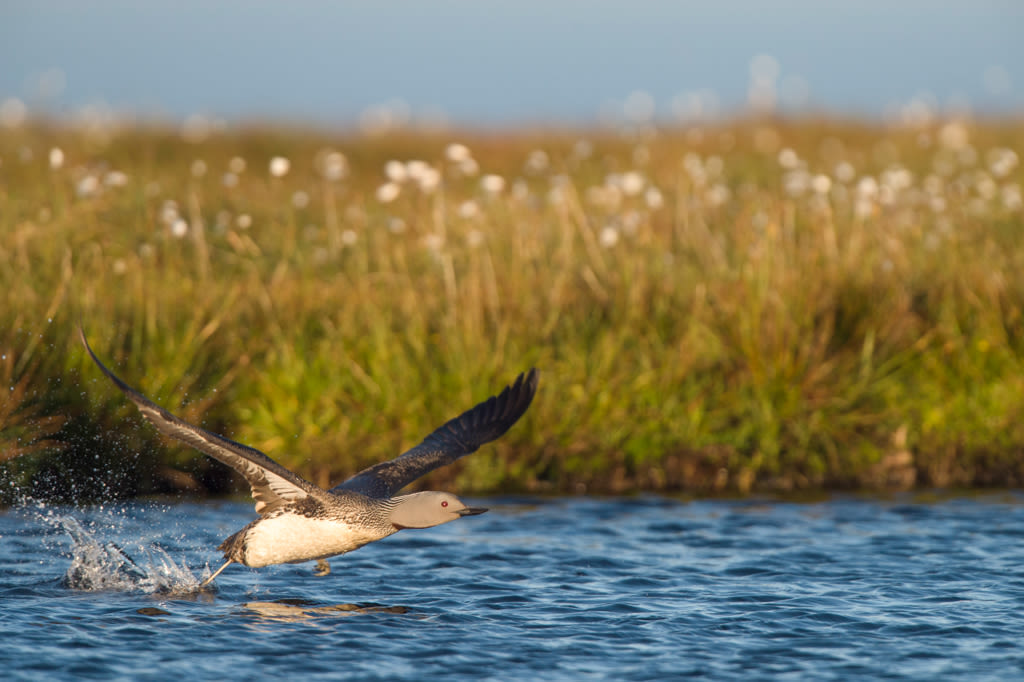
More detail means more accurate data thanks to the 115-mm spotting scope
As a naturalist, birder and ecological consultant, my time in the field throughout the seasons varies greatly. One element however remains a constant, and of great importance: the quality and detail of observation. The 115-mm objective module has brought this to another level.
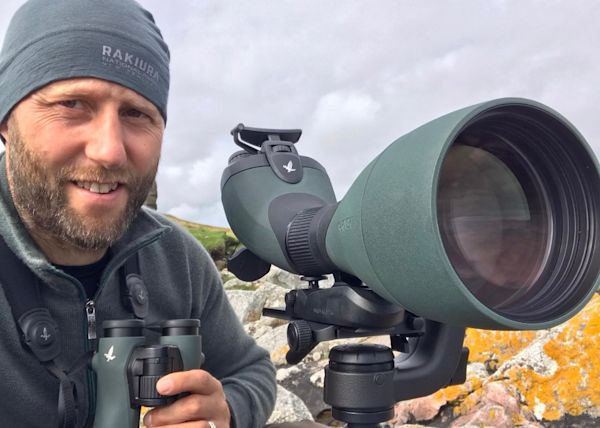
About the author:
Brydon Thomason
is naturalist consultant, photographer, guide and birder. With a lifetime of knowledge of his Shetland Islands homeland he owns and operates Shetland Nature, a wildlife tour company that celebrates the archipelagos rich natural and cultural heritage. He has worked as a media consultant, and appeared on numerous television productions about the islands wildlife, particularly the islands otters, his life’s passion. He co-authored the acclaimed book 'Otters in Shetland- the tale of the draatsi' sharing the lives, ecology and behaviour of one of Europe’s most charismatic mammals. He also works as an ornithological and ecological surveyor and consultant.
